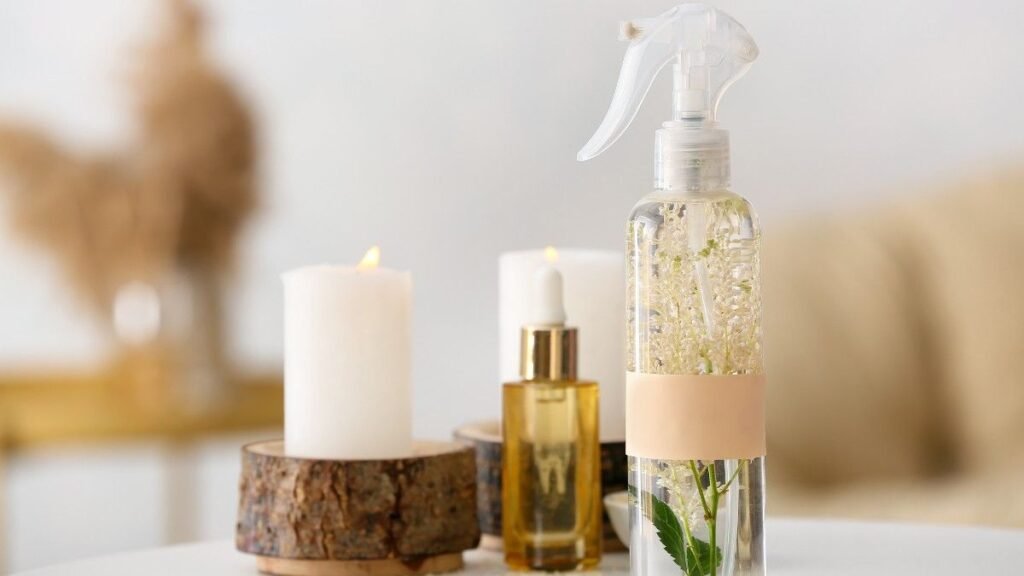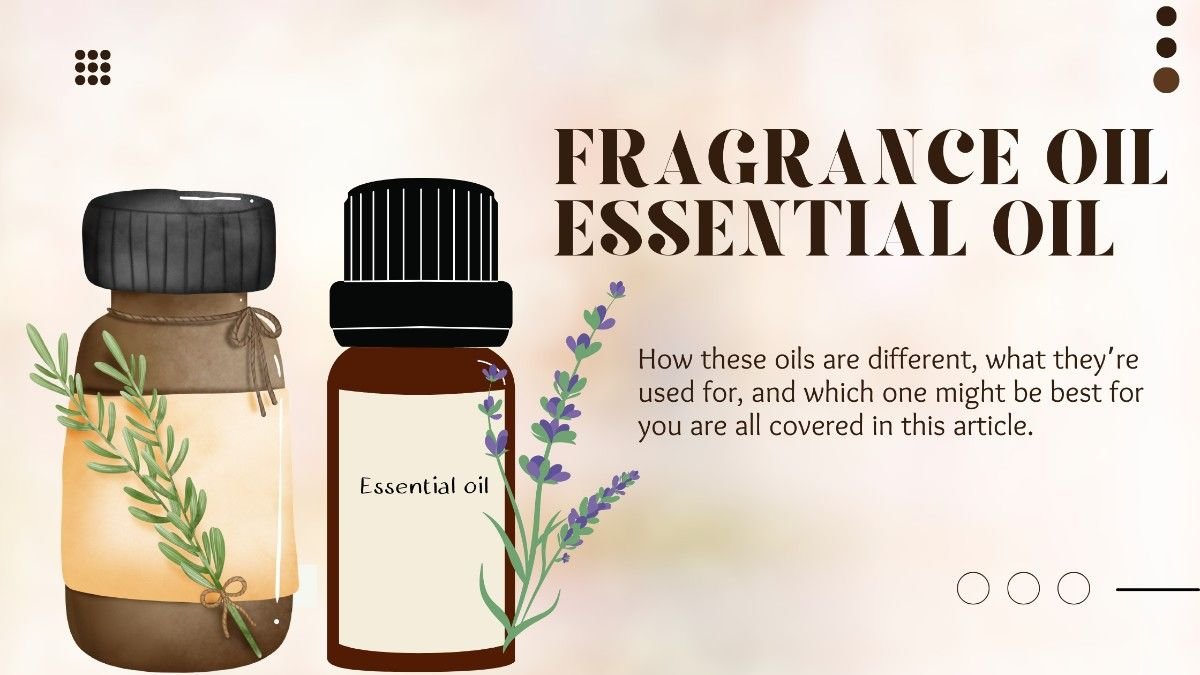The world of scents is vast and intriguing, offering various options to suit different preferences and purposes. Fragrance oil vs essential oil are two of the most popular categories in this realm of scents. Although these oils seem similar at first glance, they have distinctive compositions, and purposes, and offer special advantages. How these oils are different, what they’re used for, and which one might be best for you are all covered in this article.
What Are Fragrance Oils?
Fragrance oils (FOs) are synthetic or natural scent compounds created in laboratories to mimic natural aromas or develop entirely new scents. Unlike natural oils derived from plants, they are created by combining chemicals, including synthetic components and occasionally natural extracts. This combination makes a wider spectrum of fragrances that might not be reachable with only natural means.
They are very flexible and can be used in a lot of different products. These cover lotions, soaps, candles, cologne oils, and perfumes. They are popular in the beauty and home fragrance industries because they can be used to make almost any scent, from freshly baked cookies to exotic flowers.

Types of Fragrance Oils
Synthetic FOs: These are completely man-made and don’t have any natural ingredients in them. They are frequently found in fragrances and cologues where particular scents must be consistently replicated.
Natural FOs: These are combined with synthetic compounds even if they have some natural components. They are usually used in products marketed as “natural” or “green.”
Perfume Oils: This particular kind of FOs are meant for usage on the skin. Perfume oils are oil-based, unlike alcohol-based perfumes, which makes them often more moisturizing to the skin and longer-lasting.
What Are Essential Oils?
Essential oils (EOs) are natural substances that are taken from plants and contain their smell, flavor, and health benefits. Usually, steam distillation, cold pressing, or solvent extraction is used in the extraction of these liquids. They get their name from their great concentration; they are the essence of the scent and qualities of the plant.
In aromatherapy, skincare, and natural medicine, EOs find great therapeutic applications. For example, lavender oil is often used to calm down, tea tree oil to kill germs, and peppermint oil for its pleasant smell and ability to help with stomach problems.

Purity and Potency
One important thing about EOs is that they are pure. They are a strong source of the natural advantages of a plant since they lack additional components or additives. This purity also means that they are more volatile than fragrance oils, evaporating more quickly and usually requiring diluting before application to the skin.
Key Differences: Fragrance Oil vs Essential Oil
1. Source of Ingredients
Fragrance oil and essential oil differ mostly from one other in their source. Natural plant sources—leaves, flowers, stems, roots, or fruits—are used to produce essential oils. On the other hand, fragrance oils are sometimes a combination of synthetic and natural molecules meant to produce particular scents.
2. Purpose and Use
Even though both of them are used for their smell, they are used for very different things. EOs are used a lot in natural practices because they can help with stress, heal skin, and lift your mood. On the other hand, FOs are mostly used for their smell and can be found in candles, perfumes, and makeup.
3. Longevity of Scent
Compared to essential oils, fragrance oils can have a longer smell lifetime. This is because fragrance oils contain man-made chemicals that are meant to keep the smell for a long time. Being natural and volatile, EOs evaporate faster and might need to be routinely diffused or reapplied to keep their scent.
4. Skin Sensitivity and Safety
Though natural, EOs are quite concentrated and, if improperly applied, can irritate skin. Most of the time, you need to mix them with a carrier oil before using them. FOs can be either more or less irritating based on their composition. Particularly synthetic FOs could set off allergic reactions in some people.
5. Versatility
Compared to EOs, FOs provide a greater spectrum of smells. FOs have an advantage in adaptability since synthetic ways allow one to produce almost any aroma. Though their scent is more limited, essential oils offer a spectrum of therapeutic advantages not found in fragrance oils.
When to Use: Fragrance Oil vs Essential Oil

For Personal Fragrance
If you’re looking for a long-lasting personal fragrance, perfume made from FOs might be your best bet. Usually more reasonably priced than EOs, these are meant to offer a constant aroma all day. If you’re interested in unusual or sophisticated aromas not found in nature, fragrance oils are also a great choice.
For Therapeutic Benefits
EOs are the preferred choice for individuals looking for natural cures for stress, anxiety, skin problems, or other health issues. From soothing the mind to treating the skin, their inherent qualities can offer a variety of advantages. Additionally perfect for use in aromatherapy, where their natural smells can improve mood and well-being, are essential oils.
For Home Fragrance

FOs are usually more successful if you want your house to smell permanently. They are frequently found in air fresheners, candles, and reed diffusers. You can also use EOs in diffusers, but the smell might not last as long, so you may need to refill them more often.
For Skincare
Regarding skincare, your skin type and goals will determine which one is best. EOs are often used in natural skin care products because they have health benefits, like reducing redness or making the skin more hydrated. However, they must be used carefully and diluted appropriately. FOs, particularly synthetic ones, should be used sparingly in skin care due to the potential for irritation.
Myths and Misconceptions

Is Fragrance Oil the Same as Essential Oil?
Those unfamiliar with the world of smells often ask this typical question. It’s not true; fragrance oil and essential oil are different. Although they can occasionally have comparable uses in products, their composition, source, and effects are quite different. EOs are pure plant extracts; FOs are typically a mix of synthetic and natural components.
Are Fragrance Oils Safe?
Their safety relies on their components and application methods. High-quality FOs are generally safe for use in products like perfumes, candles, and soaps. However, people with sensitive skin should test fragrance oil products first because some fake ingredients can make them allergic.
Are Essential Oils Always Better?
They are natural and can help with health problems, but they aren’t always the best choice. FOs would be more suited for long-lasting odors like candles or personal fragrances. Furthermore, especially when used on the skin, EOs call for careful handling and correct dilution.
Conclusion
To make smart choices about how to use them, you need to know the differences between fragrance oil and essential oil. Each has a place in the world of aromatics whether your taste is for the pure, natural essence of essential oils or the rich, complex scents of fragrance oils for perfume.

